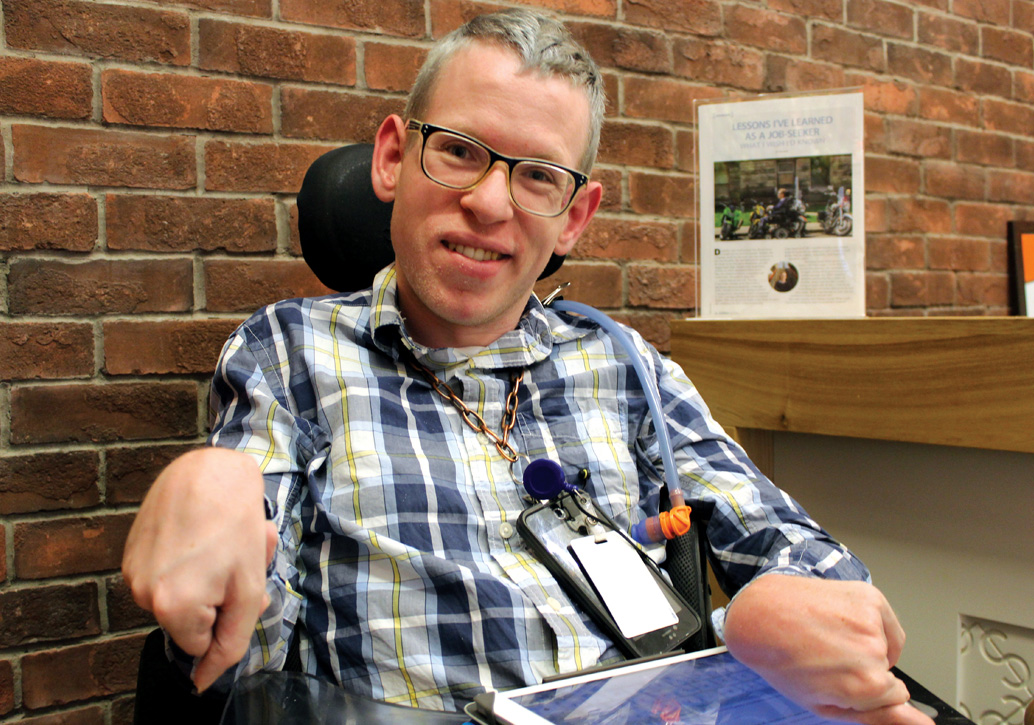The real value of having a summer job
By Tim Rose
Disability and the quest for successful, meaningful employment continue to be tough bedfellows. This has always has been the case, as evidenced by the fact that the unemployment numbers in Canada among our community are just not going down fast enough.
There are many reasons for this, some of which I’ve written about before in this very magazine. Among those we hear about most frequently are fear and stigma; misinformation about the skill levels and accommodations necessary for hiring employees with disabilities; and a lack of tools and resources to help employers get started. But there is one factor that, in my view, has not yet been talked about enough: the benefit of “early workforce attachment” for young people with disabilities.
Getting a head start
Let me put it this way: Starting work as a young person and getting some kind of experience is part of an individual’s rite of passage. Students are waitstaff, bartenders, grocery baggers and suchlike. First jobs are often at summer camps, golf courses, retail outlets or fast-food establishments. These are the places where we learn basic skills such as being on time, serving customers, using the photocopier, answering the phone properly, working with others, filling in time sheets, working set hours and so on.
Staying out of the no-hire zone
When we recognize that connecting to work opportunities is harder overall for people with disabilities, the fact that most teens with disabilities often don’t have the same high-school and university summer jobs as their peers just adds to the litany of reasons why they end up in a “no-hire zone.”
Let’s face it…jobs in front-line retail, the fast-food industry and daycare are not always the easiest roles for those with disabilities—whether because of physical limitations, mental health challenges, onerous schedules or the fact that we have “more important things to worry about.”
Empty resumes
What does this mean in real terms? It means that when we are finally ready to go out and find a job, we usually have massive gaps in our resumes. Many of us have never worked a day in our lives, so how can we expect to compete? So, even if an employer is prepared to hire someone with a disability, when all is said and done, the lack of measurable work experience and references can pose yet another major barrier.
In my view, this reality represents a critical area that now needs to be addressed in the field of disability and employment. If we do not “start early,” like others, then it becomes a lot harder to get a foothold later.
So where do we start?
1. The buck doesn’t stop with persuading companies that they should be willing to hire summer workers or part-time students. We have to want to work at an earlier age, and seek out ways to make that happen.
2. It is up to those of us who have been there to make a difference by supporting and mentoring the next generation so that they understand the stakes and plan their next steps carefully.
3. No one ever has their entire career figured out in high school. But, if you can start thinking about what you might like to do early then you can start learning more about career opportunities and plan ways to get lived experience, and build experience for your resume.
4. Finally, I would encourage every young person, with any type of disability, to think about what kind of summer or seasonal jobs might fit their skill set and interests. Try to connect with professionals in that field. Look for opportunities to get involved. Volunteer or intern in a place where you can learn the ropes. And, best of all, don’t be shy or afraid to ask for help and introductions.
Learn from me
These are all things that I wish I had done better in my teenage and young-adult years. So, learn from me and understand that what you do in your early years can make the difference between getting a slow start and enjoying a competitive edge, just like everyone else. Believe me…your future self will thank you.
Job hunting tips
Dare to dream. Know what you want and why you want it before hitting the job market. When skill and interest are combined they are usually also accompanied with passion, which will be plain to see.
Practice makes perfect. Matching your interest to in-demand skills in the workplace is key. Do research to find out more about the employing company and never go to an interview without practicing beforehand with someone you trust.
Let everyone know. The best way to find a job is through networking. Tell your friends, families and people you meet about the job you are seeking. Go to networking events. Promote your interests on social media.
Getting a job is a job. Getting a good job is usually a marathon, not a sprint. Set aside certain hours for networking and research. Use job boards to identify open positions, then network to identify the hiring manager.
Tim Rose is the Diversity Project Lead at Magnet, an innovative job matching service for people with disabilities. Visit the website magnet.today.














